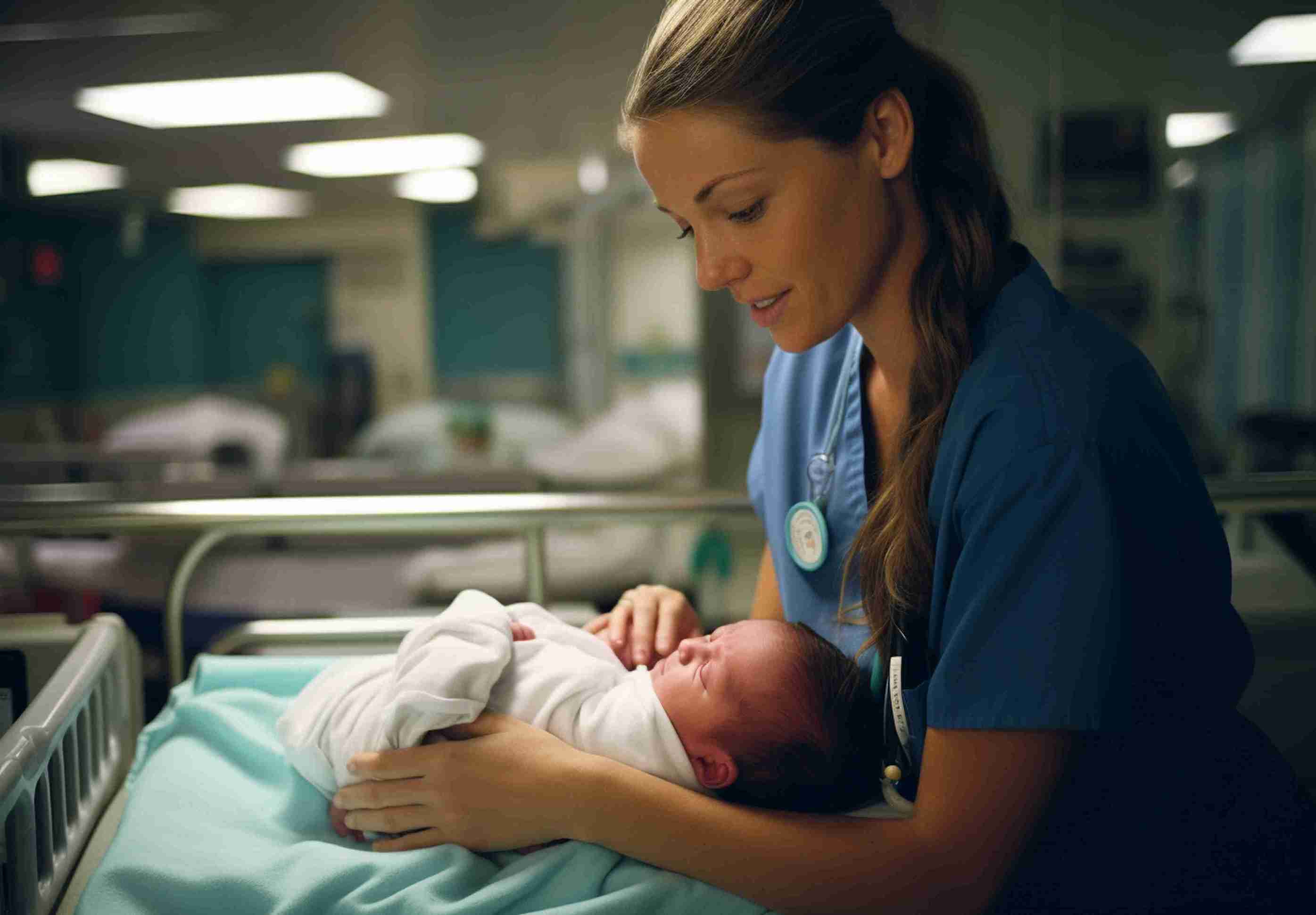Neonatal Nursing Courses: What You Need to Know for a Career in NICU

Neonatal nursing is a specialized and rewarding field focused on caring for newborn infants who require intensive medical attention. Neonatal nurses work in the Neonatal Intensive Care Unit (NICU), providing lifesaving care for premature babies, newborns with congenital disabilities, and those facing serious health issues. If you’re interested in a career in NICU, specialized training and certification in neonatal nursing are essential. Here’s a comprehensive guide to neonatal nursing courses, the skills needed, and the path to becoming a neonatal nurse.
1. Overview of Neonatal Nursing
- Role of a Neonatal Nurse: Neonatal nurses care for newborns with various health issues, from respiratory disorders and heart conditions to infection and prematurity. Their responsibilities include monitoring vital signs, administering medications, assisting with feeding, and providing family support.
- NICU Levels: NICUs are divided into levels, from Level I (basic care) to Level IV (highly specialized intensive care). Most neonatal nurses work in Level II through IV units, where infants with complex needs require specialized care.
2. Educational Path to Becoming a Neonatal Nurse
- Nursing Degree: The first step is becoming a registered nurse (RN) by earning an associate’s or bachelor’s degree in nursing (ADN or BSN) and passing the NCLEX-RN exam.
- Gain General Nursing Experience: Many NICUs require nurses to have at least one to two years of experience in pediatrics, labor and delivery, or critical care before specializing in neonatology.
3. Neonatal Nursing Courses and Certifications
- Neonatal Resuscitation Program (NRP): Offered by the American Academy of Pediatrics, this certification teaches essential skills for resuscitating newborns. It is typically required for all nurses working in the NICU.
- Certified Neonatal Nurse (RNC-NIC): The RNC-NIC certification is offered by the National Certification Corporation (NCC) and is designed for experienced neonatal nurses. It covers critical areas like respiratory care, pharmacology, and developmental care.
- Neonatal Critical Care Nursing (CCRN-Neonatal): Administered by the American Association of Critical-Care Nurses (AACN), this certification is for nurses specializing in neonatal critical care and enhances skills in handling high-risk, critically ill newborns.
- Pediatric Advanced Life Support (PALS): Although not specific to neonatology, many NICUs require nurses to have PALS certification to manage life-threatening situations effectively.
4. Core Skills Developed in Neonatal Nursing Courses
- Assessment and Monitoring: Neonatal nurses learn how to closely monitor and assess vital signs and other indicators of health, as premature infants have unique health needs that require constant evaluation.
- Understanding Neonatal Physiology: Courses in neonatal nursing cover newborn physiology, equipping nurses to understand the distinctive health challenges premature or sick infants may face.
- Respiratory Support Techniques: Many neonates need assistance with breathing. Nurses are trained in techniques like intubation, ventilation, and monitoring oxygen levels to maintain stable respiratory function.
- Nutritional Support: Feeding issues are common in the NICU. Neonatal nurses learn how to provide nutrition via intravenous feeding or nasogastric tubes to support the infant’s growth and health.
- Family Education and Support: Courses emphasize how to work with families, teaching them how to care for their newborn, providing emotional support, and educating them on their child’s needs.
5. Hands-On Training in the NICU Setting
- Simulation-Based Learning: Many programs use simulations to give neonatal nurses practice with real-life scenarios, including emergency situations. This helps nurses gain confidence and experience before working in a live NICU environment.
- Clinical Rotations: Neonatal nursing courses often include clinical rotations in a NICU, allowing nurses to apply their skills in a real-world setting, work with experienced professionals, and get comfortable with NICU protocols.
- Mentorship Opportunities: Some training programs pair new nurses with experienced neonatal mentors, providing valuable guidance and support as they transition into the NICU.
6. Essential Qualities of a Neonatal Nurse
- Attention to Detail: Premature and ill infants are extremely vulnerable, and even small changes in vital signs or behavior can signal significant changes in health. NICU nurses need sharp observational skills and attention to detail.
- Compassion and Patience: Working with infants and anxious families requires empathy, compassion, and patience to help families navigate the stress of the NICU experience.
- Critical Thinking and Problem-Solving: NICU nurses often make quick decisions in high-stakes situations. Courses provide training on assessing situations rapidly and implementing appropriate interventions.
7. Career Advancement and Opportunities in Neonatal Nursing
- Advanced Practice Roles: After gaining experience, neonatal nurses can pursue advanced roles, such as Neonatal Nurse Practitioner (NNP) or Neonatal Clinical Nurse Specialist (CNS), by obtaining a Master’s or Doctorate in nursing with a neonatal focus.
- Leadership and Education: With experience, some neonatal nurses move into leadership roles, such as NICU nurse manager or educator, where they can influence neonatal care standards and mentor new nurses.
- Specializations: Within neonatology, nurses can specialize further, such as focusing on NICU care levels or specific conditions like respiratory disorders, giving them a unique skill set within the NICU environment.
Neonatal nursing is a fulfilling, demanding field requiring specialized training, certifications, and a deep commitment to caring for the most vulnerable patients. Neonatal nursing courses prepare nurses with critical skills, from neonatal resuscitation to family support, equipping them to excel in this rewarding area of healthcare. With the right training, experience, and certifications, aspiring neonatal nurses can build a meaningful career that supports newborns and their families during some of their most challenging times.
